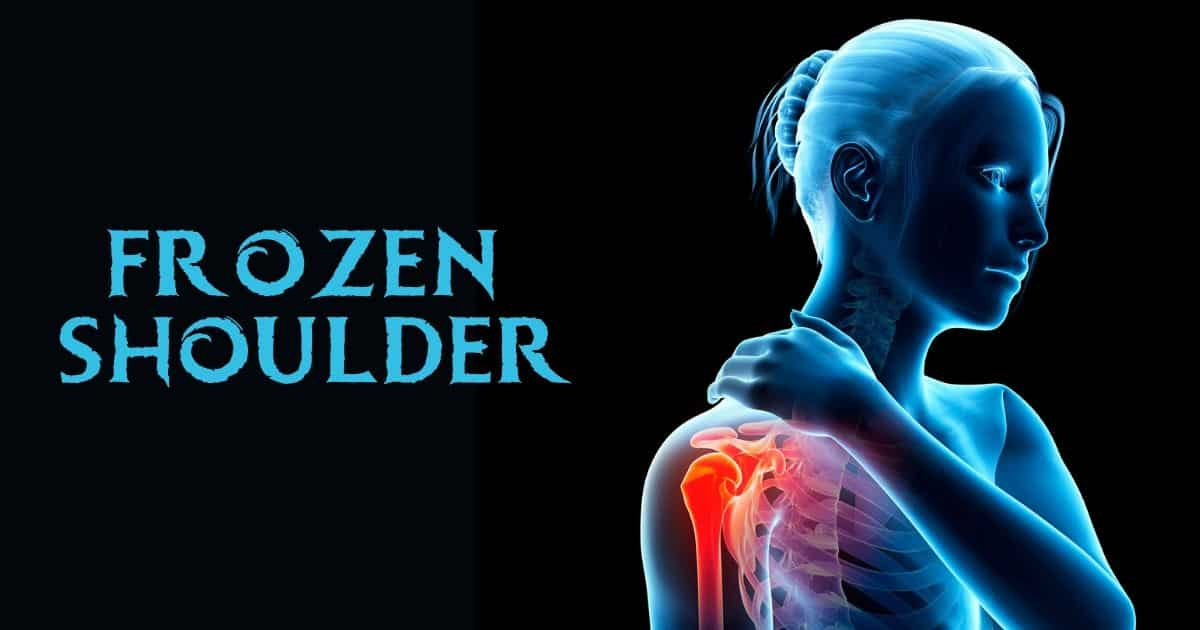- 23-Jul-24
Adhesive capsulitis, another name for frozen shoulder, is a disorder that restricts shoulder joint motion. Usually, you have stiffness and soreness that starts slowly, gets worse, and then eventually goes away. Three bones make up your shoulder joint: the humerus (upper arm), the scapula (shoulder blade), and the clavicle (collarbone). Everything is held together around your shoulder joint by strong connective tissue.
This capsule gets so stiff and thick from frozen shoulder that it becomes difficult to move. Scar tissue bands develop and the amount of synovial fluid, which lubricates joints, decreases. These further restrict the range of motion in your shoulders. The term "frozen" shoulder refers to the fact that you utilize your shoulder less as it becomes increasingly painful. Your shoulder capsule thickens and becomes more challenging to use the less you use it. As a result, your shoulder feels "frozen" in situ.
Frozen Shoulder Symptoms:
Usually, frozen shoulder occurs gradually in three stages.
- Freezing stage: The shoulder becomes painful to move, and its range of motion is restricted. Two to nine months make up this phase.
- Frozen stage: This phase may see a decrease in pain. But the shoulder stiffens up more. It becomes more challenging to use. Four to twelve months pass throughout this phase.
- Thawing stage: The range of motion in the shoulder starts to increase. This phase lasts for five to twenty-four months.
In certain cases, the discomfort gets greater at night and interferes with sleep.
Frozen Shoulder Causes:
While the exact cause of frozen shoulder is unknown, certain populations are more susceptible than others. Women are more likely to get frozen shoulder (including those assigned female at birth). It's more common to occur in people between the ages of 40 and 60. A significant risk factor is prolonged immobility of the shoulder. Therefore, the likelihood increases if you are recuperating from a medical condition such as a stroke or surgery such as a mastectomy that prohibits you from using your arm.
Additionally, you run a higher chance of experiencing decreased shoulder range of motion due to inflammation, such as that caused by bursitis or tendinitis in the rotator cuff. Additionally, some medical disorders raise your risk. Frozen shoulder can also become more likely if you have diabetes. Frozen shoulder affects 10–20% of diabetic patients. Additional health issues connected to frozen shoulder include:
- Heart disease
- Thyroid disease
- Parkinson’s disease
Integrated Medical Care Hospital (IMC Hospital):
The multi-specialty IMC Hospital was founded in collaboration with DHA Lahore with the goal of revolutionising healthcare and introducing the concept of completely integrated treatment and services. You can locate the Best Infertility Specialist right here. Visit Integrated Medical Care Hospital (IMC Hospital) today and make an appointment.
Prof. Dr. Hafiz. M. Asim:
DPT (USA), OCS (USA), PhD (Malaysia)
Specialties: Physical Therapy and Rehab Services
Area of focus: Musculoskeletal and orthopedic conditions, post-surgical rehabilitation, pediatric rehabilitation, Neuro rehabilitation and orthotics & prosthetics.

 Map
Map










